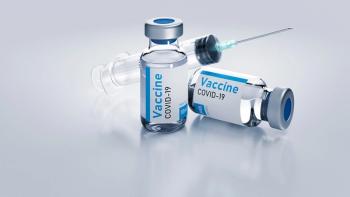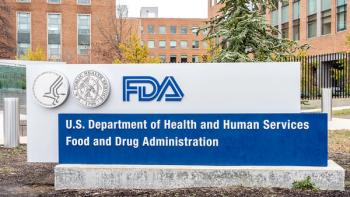
Regulatory Authority Actions
Latest News
Latest Videos

More News

EU regulators clear Otsuka’s antisense injectable to prevent hereditary angioedema attacks, reinforcing momentum for RNA-based rare disease medicines.

The approval of aflibercept for visual impairment from macular edema following retinal vein occlusion is based on clinical data that suggests higher-dose anti-VEGF therapy can preserve vision while extending dosing intervals.

EU approval of a prefilled Shingrix syringe streamlines vaccine delivery, while Phase III data position bepirovirsen as a potential functional cure for hepatitis B.

The CDC has narrowed pediatric vaccine guidance, resetting evidence expectations and signaling potential shifts in vaccine uptake and market demand.

China’s authorization of GSK’s Nucala (mepolizumab) for treating COPD signals regulatory momentum for precision respiratory medicines in the country.

Key 2025 FDA draft and final guidances emphasize the modernization of biotech regulations, acceleration of rare-disease therapies, and streamlining of biosimilar pathways.

European regulators authorize AstraZeneca’s anifrolumab pen for lupus, reinforcing industry momentum toward self-injected biologics and decentralized immunology care.

FDA’s approval of the first Wiskott-Aldrich gene therapy signals a shift in manufacturing and regulatory standards for rare-disease CGTs.

FDA’s clearance of a chemically enhanced stem cell therapy for severe aplastic anemia drives forward cell therapy development and manufacturing innovation.

Priority review, RMAT, and breakthrough status were key regulatory actions intensely accelerating advanced next-gen therapy development in 2025.

FDA’s new-indication approval for lisocabtagene maraleucel in marginal zone lymphoma boosts engineered T-cell treatment for relapsed lymphoma.

FDA outlines reduced primate testing for monoclonal antibodies, signaling a shift toward modern evaluation tools that may influence drug development practices.

FDA’s internal findings raise new concerns over pediatric vaccine safety and signal potential regulatory shifts affecting future COVID-19 vaccine development.

The EC approves the world's first liquid IV infliximab biosimilar, which cuts preparation time by 51% and offers up to €2.6 million (US$3.0 million) in potential annual savings.

Biogen reports CHMP support for an enhanced nusinersen regimen, signaling potential shifts in SMA treatment strategies and global regulatory decisions.

FDA’s newly introduced review route enables faster clearance of custom genetic and cell treatments, reshaping rare-disease development and manufacturing strategies.

The regulatory progress for AAVantgarde’s AAVB-039 underscores advances in dual-vector gene therapy, as well as scalable manufacturing and efficient rare-disease clinical development.

The 100% tariff on imported drugs will pressure biopharma companies to build manufacturing sites in the US or face significant costs.

ACIP votes to separate MMR and varicella vaccines (MMRV) for children to cut febrile seizure rates.

FDA’s fast track designation may speed VMX-C001’s application review, addressing urgent surgery needs in patients on Factor Xa anticoagulants.

Moderna’s updated Spikevax and mNEXSPIKE COVID-19 vaccines target the LP.8.1 variant of SARS-CoV-2 for high-risk groups and older adults.

EC clears ExCellThera’s Zemcelpro, a cord blood–based stem cell therapy that offers transplant access to blood cancer patients lacking suitable donors.

The additional approval expands the label for Avtozma (tocilizumab-anoh) to now include the treatment of cytokine release syndrome, which aligns the therapy with all indications for which Actemra is approved in the US.

Bristol Myers Squibb is seeking approval of Breyanzi (lisocabtagene maraleucel) to treat relapsed or refractory marginal zone lymphoma, making this the fifth cancer type for which the cell therapy would be approved.

Biocon Biologics’ Yesintek demonstrated comparable safety and efficacy to the originator project, according to clinical data from a trial program.









